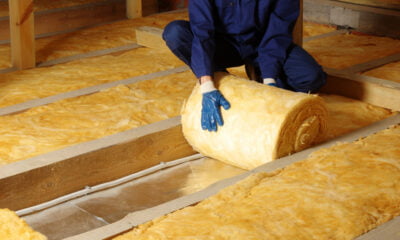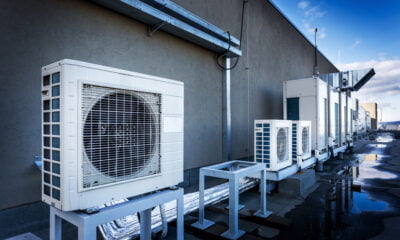Features
The future of intelligent energy
Smart meters: all houses and businesses will soon have them, but what exactly are they and why do you need one? Chris Welby, policy and regulatory affairs director at Good Energy, has the answers.
The basic smart meter has two main functions. Firstly, it tells people how much energy they’re using in real time. Secondly, it can be read remotely meaning that visits to premises are not necessary.
Even a basic smart metering system will bring benefits to consumers who want to engage. Simply understanding how much energy the house uses when everything is supposedly turned off can lead to significant behavioural changes that reduce consumption.
Research by the Energy Savings Trust shows that appliances left on standby make up about 8% of a typical annual electricity bill. Reducing this wastage is particularly important because energy prices are expected to continue rising in line with fossil fuel prices.
But at Good Energy, we hope the Government will recognise the great opportunity to take the idea further.
To reduce our energy consumption, we need a metering system that goes beyond smart – it must exhibit real intelligence. Most of us are too busy to continually think about how much energy we’re using, but smart meters could automate the process.
After all, do you really care when your water is heated as long as you can have a hot shower when you want it? Smart meters should be able to work together to optimise energy usage within a neighbourhood, so that water heating happens at different times of the day in neighbouring properties and not while everyone’s cooking dinner.
Households with solar thermal panels for example, which generate heat, could have a metering system that optimises use of their own power before importing from the grid, so that the water gets heated when the sun is shining. Long-term smart meters could match consumption with renewable energy production, for example, powering down the freezer when the wind drops.
There has been a lot of debate about what smart metering systems can do. But the UK Government is currently lacking the vision required to take smart metering beyond simply providing energy usage information – in fact, they may not even support real time communication between meters and suppliers.
The smart metering infrastructure we install today may have a 20 year working life, which seems to work against the desperate need to empower customers to manage their energy usage efficiently and effectively now.
Network companies will also need real time access to smart meters if they are to effectively manage a system with the increased electricity usage demanded by electric vehicles and heat pumps. Network companies have two choices: lay bigger cables or manage their network more efficiently.
The basic premise of receiving energy bills based on actual readings will help by enabling customers to pay for exactly what they use and leading them to make behavioural changes. But smart meters could deliver so much more. There is a great opportunity here and we hope that the Government seizes it for a step change to encourage more intelligent use of energy.
Visit Good Energy to find out more about smart metering.
Further reading:
The Rise of the Sustainable Home


 Environment11 months ago
Environment11 months agoAre Polymer Banknotes: an Eco-Friendly Trend or a Groundswell?

 Features10 months ago
Features10 months agoEco-Friendly Cryptocurrencies: Sustainable Investment Choices

 Features11 months ago
Features11 months agoEco-Friendly Crypto Traders Must Find the Right Exchange

 Energy10 months ago
Energy10 months agoThe Growing Role of Solar Panels in Ireland’s Energy Future





























